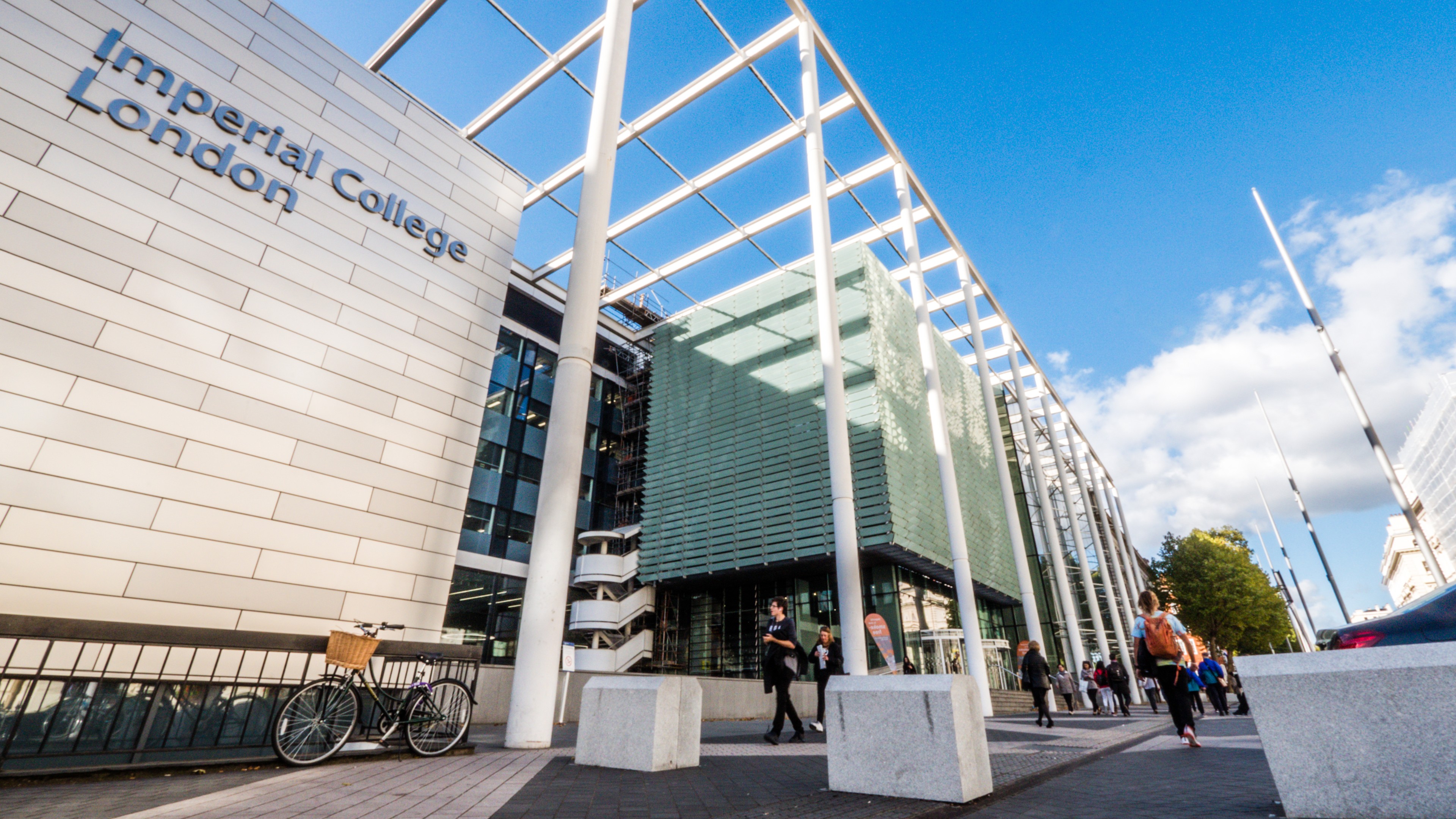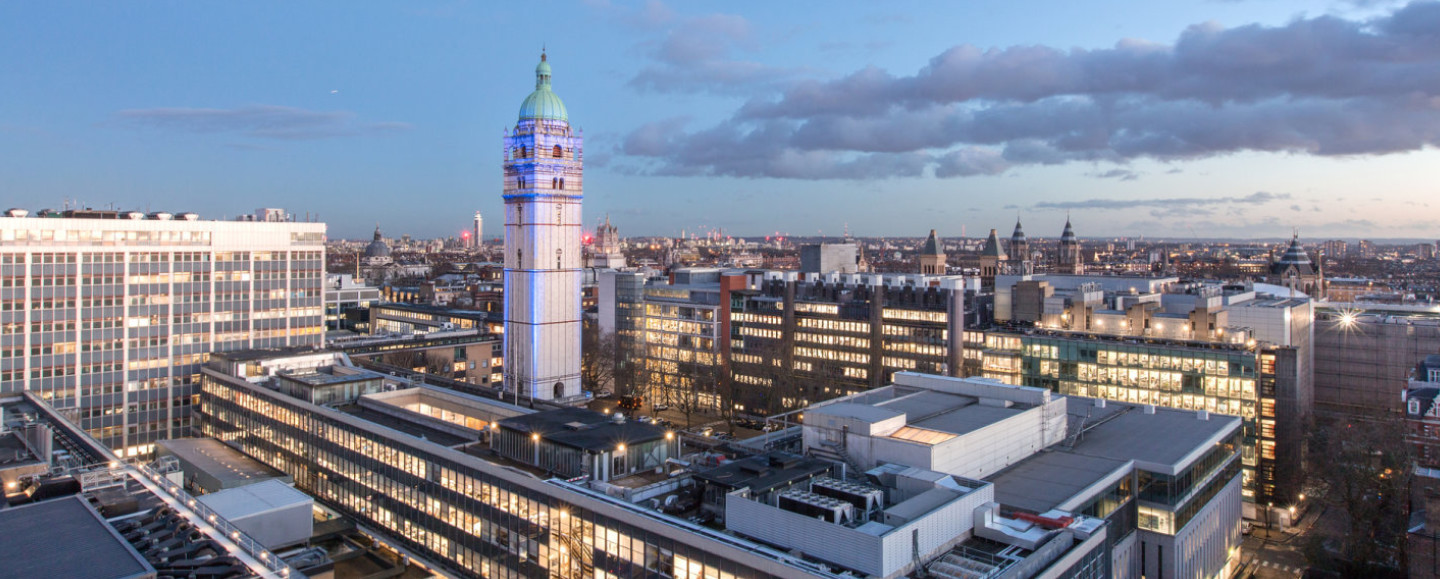Thinking about where to study physics, you know, it's almost a big decision, isn't it? Well, when people talk about top-tier science education, one name that very often comes up is Imperial College London. For anyone dreaming of a career unraveling the universe's secrets, the physics department here is, in some respects, a real beacon. It draws bright minds from all corners of the globe, all eager to delve into the very fabric of reality. So, if you're curious about what makes this place special, you're definitely in the right spot.
This article will, in a way, give you a pretty good feel for what studying Imperial College London physics is truly like. We'll explore the academic programs, the amazing research going on, and, you know, just what life might be for a student there. It's not just about equations and theories; it's also about a vibrant community and a place where, honestly, new ideas are born every single day.
We'll talk about why this particular physics program has such a strong reputation, what kinds of pathways you can take, and what happens after you graduate, too. It’s pretty clear that for many, Imperial represents a significant step towards, well, a future in science. So, stick around, and let's see what makes this institution such a compelling choice for physics enthusiasts.
Table of Contents
- What Makes Imperial College London Physics Stand Out?
- Navigating the Physics Degree at Imperial
- Career Paths After an Imperial Physics Degree
- Frequently Asked Questions About Imperial Physics
What Makes Imperial College London Physics Stand Out?
When you consider Imperial College London physics, you're really looking at a place that has, you know, a very long history of making big scientific contributions. It's not just another university department; it’s a hub where some of the most exciting discoveries have happened and continue to happen. This tradition of excellence is, pretty much, woven into everything they do there.
The teaching staff, for instance, are often leading figures in their fields, so you're learning directly from people who are shaping the future of physics. That's a pretty big deal, really. It means the education you get is, well, incredibly current and relevant to what's happening in the scientific world right now.
They also have, like, amazing facilities. We're talking about state-of-the-art labs and equipment that many other places just don't have access to. This practical experience is, you know, absolutely key for any aspiring physicist.
A Legacy of Brilliance
Imperial College London has, basically, a truly rich past when it comes to physics. Many renowned scientists have walked its halls, contributing significantly to our collective knowledge. This historical depth gives the department a certain gravitas, a sense of being part of something much bigger.
It's a place where, you know, the foundations for future breakthroughs are constantly being laid. The atmosphere itself seems to encourage deep thinking and bold questioning. You feel, kind of, connected to a long line of inquisitive minds.
This legacy isn't just about the past, though. It's a living tradition that shapes the current approach to teaching and research. Students are, really, inspired by the achievements of those who came before them.
Cutting-Edge Research Opportunities
One of the most compelling aspects of Imperial College London physics is the sheer breadth of research happening there. From the tiniest particles to the vastness of the cosmos, they're exploring pretty much everything. Students often get chances to participate in these projects, which is, well, incredibly valuable.
Imagine working alongside professors who are, you know, pushing the boundaries of human understanding. That's a regular occurrence here. They have groups working on quantum physics, astrophysics, theoretical physics, and even medical physics. So, there's a lot to pick from.
These research experiences are, quite frankly, what help set Imperial graduates apart. It's not just learning from books; it's about actively contributing to science. That's a pretty exciting prospect for many, you know.
The Student Experience: More Than Just Lectures
Studying physics at Imperial isn't, you know, just about sitting in lecture halls all day. There's a really active student community, with various societies and clubs. You can find groups for everything from astrophysics enthusiasts to those interested in, like, specific programming languages used in physics.
The support system for students is, in some respects, pretty robust too. There are academic advisors and, you know, various resources to help you through the challenging parts of the course. It’s a demanding program, but you're not left to figure it all out on your own.
Being in London, of course, also adds another dimension to the student experience. You have access to world-class museums, libraries, and, well, just a very lively city. It’s a great place to be, actually, for both academic pursuits and personal growth.
Navigating the Physics Degree at Imperial
Getting into and then through the Imperial College London physics program is, you know, definitely a journey. It requires dedication and a genuine passion for the subject. But, for those who are up for the challenge, the rewards are, quite honestly, immense.
The degree structure is designed to give you a very solid foundation in core physics concepts. Then, as you progress, you get more freedom to specialize in areas that really capture your interest. This balance is, pretty much, what makes the program so effective.
They also put a lot of emphasis on problem-solving skills, which are, you know, incredibly useful not just in physics but in many other fields too. It’s about learning how to think, not just what to think.
Course Structure and Specializations
The physics degree at Imperial, like your, usually starts with a broad introduction to classical mechanics, electromagnetism, and quantum mechanics. This first year or so, you know, sets the stage for everything else. It ensures everyone has a strong base.
As you move into later years, you can, sort of, start picking modules that align with your specific interests. Maybe you're fascinated by cosmology, or perhaps you're more drawn to condensed matter physics. There are, actually, quite a few options.
This flexibility means that while you all graduate with a physics degree, your individual learning path can be, you know, very unique. It allows you to tailor your studies to what truly excites you, which is great.
Entry Pathways and What They Look For
Getting a spot in Imperial College London physics is, honestly, very competitive. They look for students with strong academic records, especially in mathematics and physics. But it's not just about grades; they also want to see genuine curiosity.
Your personal statement is, like, a really important part of your application. It's your chance to show them why you're passionate about physics and what you hope to achieve. So, make sure it reflects your true interest.
They also, you know, often look for evidence of independent learning or extracurricular activities related to science. This shows you're not just doing the minimum; you're really engaged with the subject.
Life in London as a Physics Student
Studying in London, you know, is an experience in itself. Imperial College is located in South Kensington, which is a very nice part of the city. You're right next to museums like the Science Museum and the Natural History Museum, which is, well, pretty convenient for a science student.
There are also, like, countless cultural attractions and social opportunities. From world-class theatre to diverse food markets, London has, basically, something for everyone. It’s a city that never really stops.
While it can be, you know, a bit expensive, there are many ways to enjoy London on a student budget. The university also offers support and advice on finding accommodation and managing your finances. So, you know, it's manageable.
Career Paths After an Imperial Physics Degree
A degree in Imperial College London physics really opens up a lot of doors, you know. It's not just about becoming a researcher or a professor, although those are certainly popular paths. The skills you gain are, honestly, highly valued across many different sectors.
Employers know that Imperial graduates are, well, very good at problem-solving, critical thinking, and data analysis. These are abilities that are, pretty much, in demand everywhere, from finance to technology. So, you have a lot of options.
The university also has a strong careers service that helps students explore these options and prepare for the job market. They offer workshops, career fairs, and, you know, individual advice.
Beyond Academia: Diverse Opportunities
Many Imperial physics graduates go on to work in, like, the tech industry, developing new software or hardware. Others find roles in finance, using their analytical skills to understand complex markets. There are also opportunities in engineering, data science, and even consulting.
Some even go into, you know, roles that might seem less directly related to physics, but where their logical thinking and quantitative abilities are still incredibly useful. It's a testament to the broad applicability of a physics education.
The world is, basically, always looking for people who can think clearly and solve tough problems, and that's exactly what an Imperial physics degree prepares you for. It's a very versatile qualification, really.
Networking and Support for Graduates
Imperial College London has, you know, a very powerful alumni network. Once you graduate, you become part of this global community of successful professionals. This network can be, frankly, invaluable for career advice and opportunities.
The careers service continues to support graduates even after they leave. They can help with job applications, interview preparation, and, you know, general career planning. It's a lifelong resource, in a way.
Many companies also, like, specifically target Imperial graduates because of the reputation of the institution. This gives you a bit of an edge in a competitive job market. So, you know, it's a good investment in your future.
Frequently Asked Questions About Imperial Physics
Is Imperial College London physics very difficult?
Yes, it's definitely a challenging program, but that's part of what makes it so rewarding. The curriculum is rigorous, and the pace is, you know, quite fast. However, the university provides a lot of support, and you'll be surrounded by, like, very bright and motivated peers. It's designed to push you, honestly, to your full potential.
What kind of research can I get involved in at Imperial?
The physics department at Imperial has, you know, a huge range of research areas. You could be working on projects related to quantum computing, black holes, medical imaging, or even new energy sources. Students often get opportunities to participate in research groups, especially in their later years. It's a chance to, you know, really contribute to ongoing scientific work. Learn more about physics research on our site.
What are the career prospects like after studying physics at Imperial?
Graduates from Imperial College London physics are, basically, highly sought after in many sectors. While some go into academic research, many others find roles in technology, finance, engineering, and data science. The analytical and problem-solving skills you develop are, you know, incredibly versatile. It's a degree that opens up a lot of different career paths, really. You can also link to this page career advice for physicists for more information.
So, if you're thinking about a future in physics, Imperial College London physics does offer a truly exceptional path. It's a place where you can, you know, really immerse yourself in the subject, learn from the best, and contribute to groundbreaking discoveries. The skills and knowledge you gain there are, frankly, going to serve you very well, no matter where your path takes you. It's a commitment, sure, but it's also, you know, an investment in a future that's full of possibilities and, well, quite exciting. For more details on their programs, you might want to visit the Imperial College London Physics Department website.



